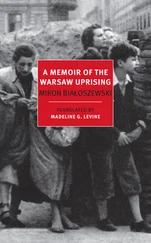We shook hands. Hers was cold but soft, and her long fingernails were painted cherry red; she plainly didn’t need to do housework, even under German occupation.
‘Is your husband in?’ I asked.
‘No, I’m sorry, he’s at work, but perhaps I can help you. Is something wrong?’
‘Nothing terribly important. It’s just that we’ve lost track of a young woman – Jewish. I’m told that you might know her.’
‘Unlikely – I don’t socialize with Jews.’
‘Very wise,’ I observed. ‘But I’d still like to speak with you a moment.’
‘I’m not yet dressed, as you can see.’
‘I have my orders,’ I replied stiffly, ‘and I wouldn’t want you to have to come down to our office. It’s way across town.’
‘Do you have some identification?’
I took out Otto’s handiwork and handed it to her. She scanned the text quickly – too quickly, as though trying to convince me she was absolutely fluent in German.
‘All right, come in,’ she said, handing me back my forgery but not bothering to hide her frown.
One test passed. I stepped inside. The floor was handsome, dark parquet, and the scent of fresh paint made my nose itch. I was evidently ready to embrace any clue, no matter how small; I pictured the blood from Anna’s severed hand splattering against the walls, which had been given a concealing coat of whitewash.
Mrs Sawicki wore gold slippers tipped by tiny pom-poms of fur, exactly like the ones on her sleeves. It seemed so ludicrous a fashion that it could only work in the movies.
‘Come this way,’ she told me welcomingly.
Passing an antique wooden dresser and secretary, we reached a large sitting room in the centre of which lay a plush red rug the exact shade of Mrs Sawicki’s fingernails. On opposite sides of the rug were a white leather sofa and three Art Nouveau armchairs whose backs were shaped like lyres and painted gold. The seats and legs were black.
I was dealing with a woman eager to go well with her furniture and decorations, but it was the space between and around things that put me on edge; having become used to our cramped clutter, this planet of comfort and wealth seemed menacing.
‘Sit here, Mr Honec,’ Mrs Sawicki told me, gesturing towards her sofa, which faced away from the windows. The buildings across the street crouched beneath the leaden sky, seeming to shrink away from winter. It was the tropics in here, however; the stove in the corner of the room – adorned with pink and white tiles in a geometric pattern – was radiating more heat than I’d felt in months. As I sat down, I thought bitterly of Stefa, one mile west and shivering under a mountain of blankets. Dislocation – heavy and hopeless – was the feeling that pulsed at the back of my head.
I was already hot, but I kept my suit coat on to appear more authoritative. I placed my hat beside me.
Mrs Sawicki sat opposite me in one of her small golden thrones. It was obvious by now that she was royalty in her own imagination, and not at all intimidated by me.
‘So, how is life at the Ministry of the Interior?’ she asked, the amused twist to her lips telling me that she regarded my work as unimportant. Leaning forward, she took a cigarette from an ivory box on the glass table between us.
‘With all the shipments of Jews coming in, we’ve been busy,’ I replied, standing up and offering her a light. She brushed my hand as she took it – a studied gesture, and a cliché, but the twinge in my gut, like a bolt opening, meant she had achieved her effect. She funnelled the smoke towards the ceiling and crossed her slender legs.
I’d purchased a pack of Gauloises cigarettes to enhance my deception. Before sitting down, I stuck one in my mouth and lit it, then surveyed the room.
On the glass coffee table between us I discovered a stack of Film Kurier magazines. The cover on top showed Greta Garbo and Robert Taylor leaning towards a passionate kiss. I remembered how disgusted Dorota had been that Anna and Paweł had had secret trysts at the cinema.
‘If you don’t mind my saying so, you speak wonderful Polish for a German,’ Mrs Sawicki told me.
‘My family moved to Warsaw when I was thirteen,’ I replied.
‘How nice for you. Where did your family live?’
She was probably testing for the ghetto. ‘Tamka Street,’ I answered – it was where my uncle Franz had lived. ‘So my father could walk to his classes. He was a professor at the university.’
‘I see. Honec – that sounds Czech.’
‘My father was from Prague and my mother from Vienna – which was where I was born.’
‘An interesting upbringing, no doubt,’ she observed generously, and yet she smoked with abrupt, irritated gestures.
Having repulsed her first attack, I grew bolder. By the entranceway to the bedrooms I’d spotted a Japanese watercolour of a yellow finch sitting on a tip of bamboo. Behind the exuberant little bird was a mist-covered mountain. I asked Mrs Sawicki if I could take a closer look.
‘By all means,’ she replied, energized by my interest.
As I stepped up to the watercolour, I brushed my hand against the wall, which proved to be completely dry – as it would be if Anna had been killed here on 24 January.
‘It’s by Sakai Hōitsu,’ Mrs Sawicki told me. ‘Japanese, late eighteenth century – Rinpa school.’
She was happy to show off her knowledge of Eastern art. I watched her smoke. She watched me watching. She adored the small spotlight I focused on her.
‘The finch and the mountain seem to be made of the same substance,’ I observed.
‘And I believe that substance is called paint,’ replied Mrs Sawicki, grinning.
A genuinely witty comment, and to please her I laughed.
All the artwork on her walls seemed to be from the Orient – and to be intended to tell guests that she was a cultured woman who had travelled far beyond the borders of Poland. So I ventured a guess: ‘Was your father in the diplomatic corps?’
‘I’m impressed, Mr Honec!’ she replied, making a small, deferential bow. ‘But it was Grandfather who was the ambassador in the family.’ In perfect German – proving my earlier conclusion about her language skills to be wrong – she added, ‘After finishing his career, he settled in Vienna. Whenever I visited him, he loved to take me out to dinner at the Imperial Hotel, on the Opera Ring. They had the best Sachertorte in all Austria – despite what the owners of the Sacher Hotel would like you to believe. Did you ever dine there, by any chance?’
Mrs Sawicki was trying to catch me out. Was I not acting my part cleverly enough?
‘If you’ll excuse a small correction,’ I told her, emphasizing my Austrian accent, ‘the Imperial is on the Kaerntner Ring. And I’m afraid it was beyond my father’s means.’
‘So it is, Mr Honec, so it is.’ Her lips were pursed with amusement again; she was aware that I knew she’d been testing me. ‘Now, if you’ll excuse me,’ she told me in Polish, ‘I’ll get dressed so we can talk properly.’
Mrs Sawicki still didn’t seem to regard me as a worthy opponent. As though to prove her wrong, I stubbed out my cigarette as soon as she had swept out of the room and started searching her furniture for anything related to Anna or Adam. In the cabinet below the Victrola, classical symphonies predominated, but I found a record by Hanka Ordonówna with Paweł’s signature on the centre label. Wouldn’t he have taken a favourite recording with him to boarding school?
In the secretary in the foyer were envelopes printed with Mrs Sawicki’s name in gold lettering, along with a dry inkwell and a puckered old apple that must have been hidden and forgotten, possibly by a younger sibling of Paweł’s. On a sudden whim, I took three envelopes and stuffed them in my coat pocket. In the dresser were linens and a set of Jugendstil silverware in a wooden case. Easing it open, I lifted out six demitasse spoons. When I placed them beside the envelopes, the rest of my visit with Mrs. Sawicki was destined to beat with the damning evidence of thievery concealed in my pocket.
Читать дальше












